ANAT ONLINE RESIDENCIES
To follow are a range of online residencies I conceived and developed at the Australian Network for Art and Technology from 1997 – 1999. This page is still a work in progress, and some links may be broken as these are historic projects.
In 1997 ANAT with support from the Australia Council, activated the deep immersion project with a series of online residencies ‘deep immersion: creative collaborations’.One of ANAT’s primary aims since its inception has been to facilitate situations whereby artists can spend concentrated periods of time researching new ideas, acquiring new skills, forming fruitful collaborations, playing with new media and developing new bodies of work.
The overall intention was to foster and facilitate placements and relationships whereby artists can come together (flesh meeting or remote mind links) to germinate and hothouse their ideas, test their hypotheses, develop new processes and create new works through a period of ‘deep immersion’ in a suitable ideas/technology culture.
The first two residencies within this framework of this project were undertaken in 1997 by Terri-ann White and Keith Netto. In 1998 the final two residencies were undertaken by low key operations and nude productions and elendil.
On October 25, the deep immersion: creative collaborations initiative was officially launched at an event at the Mercury Cinema in Adelaide, the central website linking to the four individual projects was unveiled at an event featuring artists presentations by Keith Netto and elendil. The two projects by low key operations and nude productions and Terri-Ann White were available for viewing in the foyer of the Cinema.
This project was curated by ANAT’s Director, Amanda McDonald Crowley, and conceived in collaboration with Francesca da Rimini.
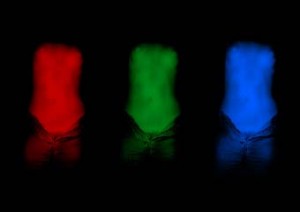
Terry Ann White, Trace, 1997
Terri Anne White: Terri Ann White of Perth, WA undertook a residency in 1997 with trAce (Nottingham, UK) who provides information about writing resources of all kinds and offers an arena for literary debate between writers and readers working in cyberspace and beyond.
Terri Ann worked from Perth, and in discussion with Sue Thomas of trAce developed ways for other contributors to trAce to participate in this project in the spirit of collaboration, critique and exploration of the online environment. One of Terri Ann’s aims was to explore ideas about memory, from the individual act of memory to its transmutation into collective memory, and especially to the complexion that collective memory acquires through social symbolism, ritual, and tradition.
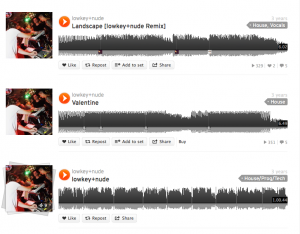
Michael Hogg and Claire McGrogan, aka low key operations and nude productions developed work entitled please press play, with AltX in Colorado, USA. Combining their respective individual areas of practice, the two artists created a hybrid work combining elements of music, poetry and the spoken word.
SonicForm, was a web based sound project by Keith Netto who worked with Electric.Music.Group [EMG], an experimental web project, online since 1995. It was set up as an outlet for artists working in a range of technologies who wanted to extend their work to the Internet.
SonicForm, was a platform for web participants to become integrally involved in the project by inviting them to go out into their local environment to source sounds for submission to SonicForm. These sounds, will be combined with those sourced from others in the SonicForm ‘community’, to become part of the online environment: this is a project premised on collaboration.
Says Netto of the project “We wander across the expanse of the net, one hyperlink to the next, in search of the next quick fix, the html-hit that provides us with transitory info bliss. The net is a place designed for the immediate satisfaction of individual desire. It’s culture has become dominated by the forces of edutainment and commerce. My intention is to create a space which can expand and deepen; a place for the reinvention of the idea of creative interactive community. Net based communities need not be bound by culture, geography or lifestyle, they can span these boundaries as conduits of communication. I intend to use SonicForm as a vehicle to explore the notion of an online communities combined with Artificial Life to create something that is a living expression of a net community.”
ANAT, as a joint initiative with the Adelaide based Electronic Writing and Research Ensemble, commissioned Perth based writer Josephine Wilson and Brisbane writer Linda Carroli to undertake ‘virtual’ residencies simultaneously in 1997.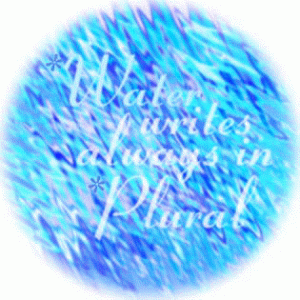
The intention was that the writers worked collaboratively via the internet to produce work hypertextually. The writers/ artists worked at their own location and were therefore in-residence virtually. The Perth Institute for Contemporary Art and the Institute of Modern Art in Brisbane are providing the writers with computer and internet access and the environment from which to work.
Carroli a freelance journalist, arts writer, essayist and researcher, has published in a range of art journals including Eyeline, RealTime, and Periphery and has curated a number of exhibitions, most recently as the Exhibitions Coordinator at Metro Arts in Brisbane. “I am hoping to extend my writing practice by addressing, in the context of writing and virtuality, contingent ideas about process, participation and performance. This project will provide me with a space in which to make connections between the theory and the practice, perhaps blurring a few boundaries in the process.”
Wilson’s recent work has been in two fields: narrative fiction and writing for performance. Her recent performance work The Geography of Haunted Places, which drew on post-colonial and feminist theory in dialogue with contemporary political issues received high acclaim when it toured recently throughout Australia and in London. Reviewing the play at the Performance Space, Stephen Dunne wrote “This is everything contemporary performance should be – playful, intelligent, self aware, technically superb and confronting.”
This project was collaboratively curated with Jyanni Steffensen and Linda Marie Walker of the Electronic Writing and Research Ensemble.
Francesca Da Rimini – Makrolab residency
Marko Peljhan’s Makrolab was installed on Rottnest Island off the coast of Fremantle (WA) as part of the Perth Festival of the Arts (February). Makrolab is a ‘self-sustaining survival environment’ which has radio signaling and tracking devices installed. Marko invited artists to submit proposals to be in residence for short terms during the project. ANAT worked with Marko to identify Australian artists and also provided small amounts of support for travel and living expenses whilst in residence in the lab. The two artists supported by ANAT to work at Makrolab were Francesca da Rimini and Leesa Willan.
Francesca da Rimini developed a poetic web diary Ghost Fields during her residency.
(Slovenian artist Marko Peljan first came to Australia as part of ANAT’s Code Red project, undertaken in collaboration with The Performance Space and curated by Julianne Pierce. Marko traveled to Brisbane after the Makrolab project, to participate in the Alchemy Masterclass.)
LOGIN was a series of residencies for emerging visual artists to develop web-based projects.
In 1998, the pilot year of the project involved four residencies for Australian artists, run in partnership with members of the Contemporary Art Organisations (CAOs) network. 200 Gertrude Street (Melbourne), 24 Hour Art (Darwin), Canberra Contemporary Art Space and Boomalli (Sydney) hosted the physical component of the residencies.
The LOGIN: residencies provided the participating artists with access computers and the internet, as well as the critical and cultural context of the host arts organisations. The artists also had access to server space, some technical support and the support of an online community. The online environment is currently a site of some of the most politically challenging and aesthetically innovative art projects. It’s a context where traditional artforms meld and mutate, and where traditional notions of authorship, exhibition and publishing dissolve into and out of each other.
The intention of LOGIN: was to provide emerging artists with an opportunity to explore, experiment and participate in the connectivity of the internet. Artists were given opportunities to develop new skills and create new works, which may encompass web-based interactive artworks, virtual environments, web-tv programs, web-based software or artificial life projects, CUSeeMe and Real Audio performances.
Lisa Beilby, a new media artist who works with photographic media and the internet, completed her residency with 24 Hr Art in Darwin in January 1999. Lisa created a work entitled thing, a constantly evolving reactive multimedia virtual space, thing prods, cajoles and quizzes the interactor/s into a meandering network of shifting pathways made of lush and challenging sound, visuals and intellectual / psychological adventures.
Beilby describes the website as ‘something which exploits the more insidious aspects of human nature and human psyche with and without the Interactor/s consent‘.
http://login.anat.org.au/anat-lisa/index.html
For her residency, Anita Kocsis, an artist who works in installation and painting within a digital context, began an adjunct to an architectural model of her mind processes, called Photonpsycho (a visual protoplasm). Her residency project was undertaken in collaboration with Melbourne organisation, 200 Gertrude Street. Her project, Neonverte, is a web based installation, built as a Garden. The installation component of the project featured elements from the site as well as a VRML glide-through of areas of Neonverte.
She wrote of the project, “My main methodology has to do with an interest in a multidimensional transformative practice rather than adhering to the transcriptive language the web provides. These ideas also intersect within the constructs of the net-collaborations. The outcome is continual.”
Dysfunctional, unpredictable and rapidly growing, the internet is drawn into the funnelweb of Kocsis’ garden site. As Anita stated: ‘to climb to the top of a tree is no easy task. The kids in Enid Blytons ‘Folk of the Faraway Tree’ knew it. They had to contend with interruptions. Yet they still climbed to see what new land had arrived. As far as I can recall some of the lands were shockers, like the ‘land of smacks’. The minute they got there they wanted to get out. Yet it was never so easy.’
http://www.neonverte.com/
http://login.anat.org.au/anat_anita/neonverte/index.html
Michael Barac is an artist and programmer who has used digital media technologies to create works for web, video and photographic environments. His residency was undertaken in collaboration with Canberra Contemporary Art Space, during which Barac explored contemporary political debates regarding Australia’s constitution, focusing the pragmatic
representation of Australia as a Republic. He focused particularly on the icon of the flag, constructing an alternative flag forum, where internet users can partake in the creation of a flag that evolves with time.
His aim was that once audience members have created their flag they can submit it via a form button in Netscape and it is automatically added to a web page. He says, ‘It’s my hope to monitor votes from visitors to the site and have a program generate a flag in a quasi-democratic way. Either votes are collected or you add the details of the flag that you made to a grand pool of details where the most popular characteristics generate a collective flag.’
Web participants may determine each mutation of the ever metamorphosing flag, by voting, or intermingling different designs. He says of the project, “I would like people to participate and have fun in some way. It would be an opportunity for people to feel involved…creating more discussion, particularly about what it means to be Australian“.

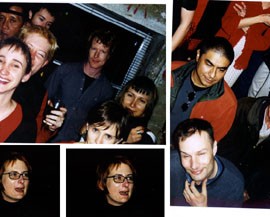
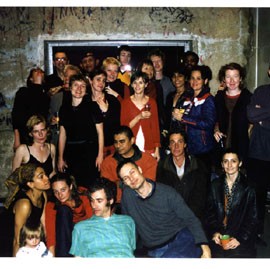



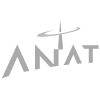
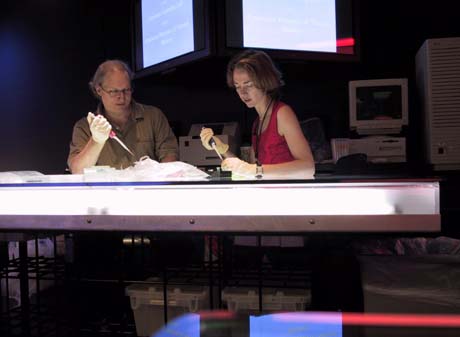
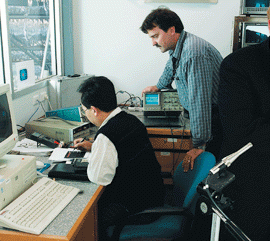
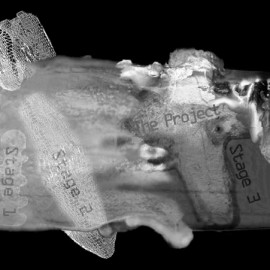
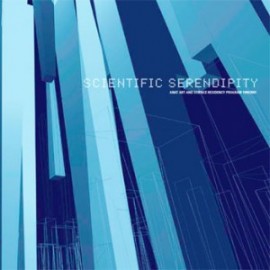
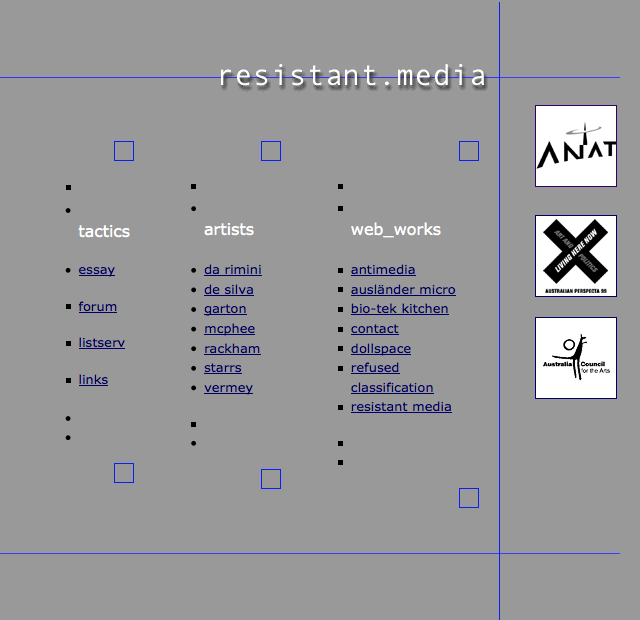
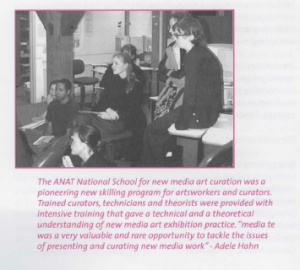


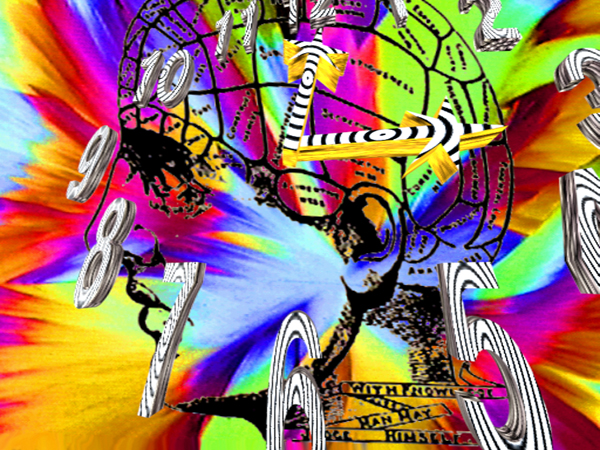




You must be logged in to post a comment.